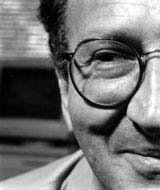Prison Songs - Historical performances from Parchman Farm 1847-48. Volume 1: Murderous Home. (The Alan Lomax Collection Rounder CD 1714).
Mandatory. Good liner notes, wonderful voices and haunting performances. Recorded in the Mississippi State Penitentiary at Parchman Farm in 1947, these are highly rhythmic worksongs sung in loose unisons and improvised harmonies, songs to synchronise the work and to just get through the day.
“It is a sobering thought, but I know of no other class of song, anywhere on earth, that was recorded at the point of a gun. Society needs to control it's errant members, but does it have to use such barbaric means? How many skifflers happily sang Leadbelly's song about Black Betty without realising that it was a four foot long one inch wide leather strap, used to flog the rebelliousness out of prisoners?” (Fred McCormick: http://www.mustrad.org.uk/reviews/prison.htm)
The Lord Will Make A Way - The Sensational Nightingales/ The Five Blind Boys of Mississippi - The Early Recordings 1947-1951 (P-Vine PCD-5837).
Two of gospel’s most electrifying quartets are represented here, culled from 78s of varying quality, mostly pretty good. (Some distortion from the screams.) Screams? If you haven't heard the Blind Boys with Archie Brownlee, do yourself a favour - what a singer, an awe-inspiring mix of white-hot intensity (When God Dips His Pen of Love) and delicacy (Lord, I've Tried). Excellent screams. Rev. Percell Perkins who shares the leads has a more unusual voice, but also delivers with great intensity. A repertoire typical of the era: every quartet had a crack at Safety Zone, John Saw The Holy Number, Working on the Building, Dig A Little Deeper and so on.
(In other words, all the songs the Heavenly Lights love.)
The Sensational Nightingales’ earliest four sides feature the late Paul Owens, a singer I've always enjoyed, a mellifluous tenor who can still whip it out. Check out Guide My Mind, long a favourite song of mine. (Owens later sang with the Swan Silvertones and the Dixie Hummingbirds, and also appeared on one of Aretha's first secular recordings, duetting with the Queen of Soul on Love Is The Only Thing - they were an item at the time.) While Owens brought a lighter jazzy style to quartet, the Nightingales’ were to become better known as a hard gospel quartet with their more famous lead Rev. Julius Cheeks, a rasping and squalling baritone who joined the quartet in the early ’50s. He sings lead on only two songs here: There’s A Vacant Room in Heaven and Live So God Can Use You.
and let's not forget my favourite on-line RADIO PROGRAM:
Give The Drummer Some (http://wfmu.org/Playlists/Doug/), : old gospel, early klezmer, Mingus, Hawaiian music, funk, Brazilian psychedelia, gutbucket soul, teenage love potions and grown-up music – Little Wing on tuba, auctioneer's calls, school bands, the Jones Girls, Duke Ellington, Anthony Braxton, the Blue Jay Gospel Singers – plus genres you didn't even know existed.
Subscribe to:
Post Comments (Atom)

No comments:
Post a Comment